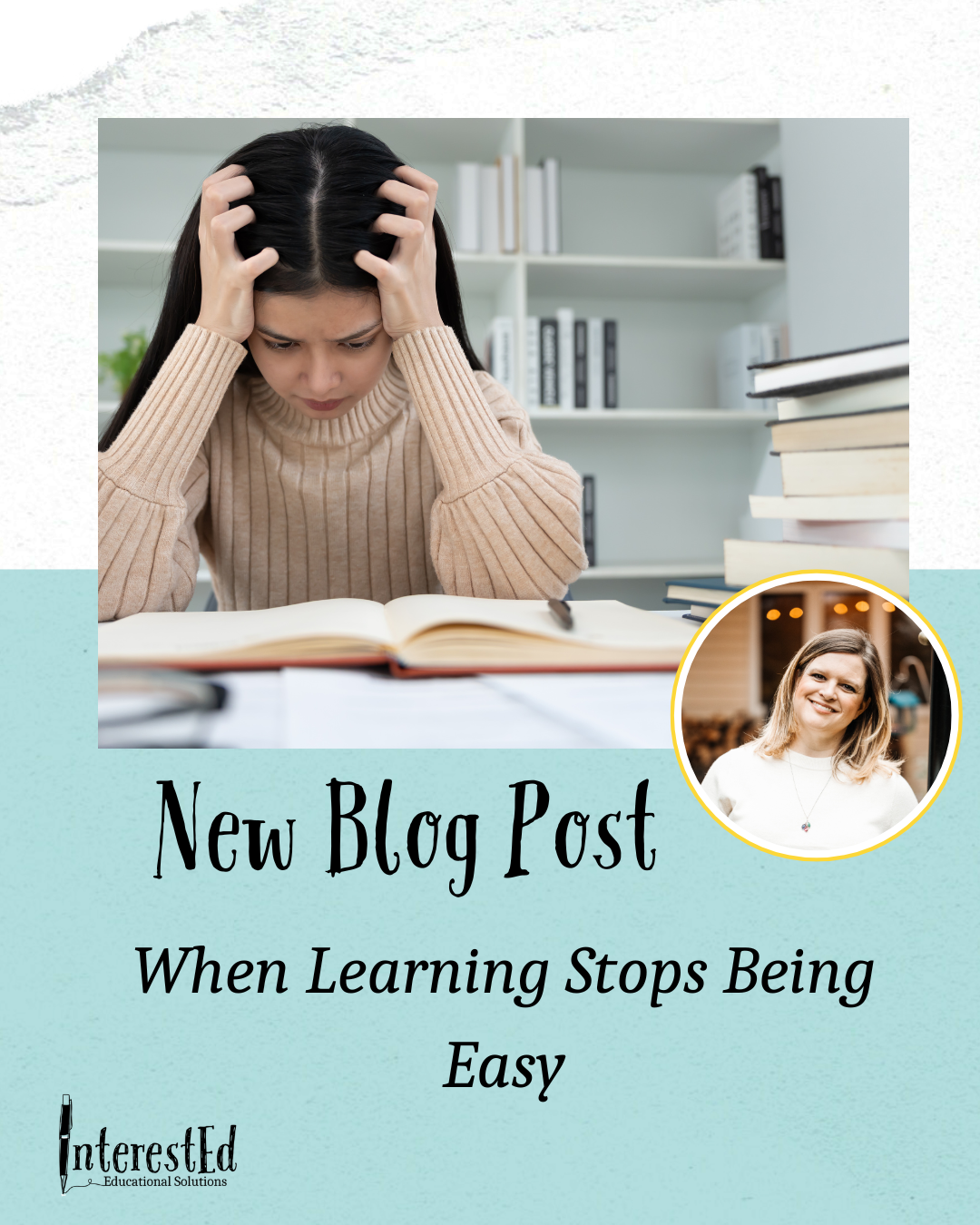
Educational Insights & Strategies
Welcome to the InterestEd Blog — a space for educators and parents to find practical ideas, flexible strategies, and inspiration for joyful learning. Here you’ll discover tips, planning tools, and insights drawn from my work as an educator, coach, and homeschool parent, with a special focus on gifted and advanced learners.
Looking for something specific? Search by topic or keyword to find articles on topics like social-emotional learning, advocacy, growth mindset, literacy, and much more!
When Learning Stops Being Easy
When my daughter admitted that she wasn’t sure she liked her advanced math class because it felt hard, I realized she might be experiencing true academic challenge for the first time. That car ride led to a conversation about why struggle matters in learning, especially for gifted students, and how growth often happens in the space just beyond what feels comfortable. This post explores the zone of proximal development through a real parenting moment and offers insight for educators and families navigating productive challenge.
20 Words to Know in Gifted Education
Words shape how we see giftedness. This family-friendly guide explains 20 key terms every parent and teacher should know — and includes a free printable PDF glossary to help you understand and support gifted learners with confidence.
Book Recommendation: Gifted and Distractible
Gifted and Distractible by Julie Skolnick offers an empathetic, research-informed look at twice-exceptional learners. It’s packed with strategies for parents and teachers to support gifted kids who also struggle with focus, regulation, or organization.
Why ‘Doing Nothing’ Is Still Productive
Rest is not wasted time—it is where creativity and reflection take root. Learn how “doing nothing” can help gifted kids process emotions, strengthen imagination, and grow with balance.
Book Recommendation: A Parent’s Guide to Gifted Children
This essential guide helps families and educators understand the joys and challenges of raising gifted children, offering practical strategies for connection, advocacy, and emotional well-being.
Book Recommendation: Smart but Scattered
Smart but Scattered is an insightful guide to building executive functioning skills for children who struggle with focus and organization—especially gifted learners. Learn how to turn frustration into growth with practical, research-based tools.
See Them. Support Them. Stretch Them.
Gifted learners think deeply and feel deeply. This guide explains key concepts like emotional intensity and asynchronous development and offers practical ways to create inclusive, caring environments.
Letting Go of Perfect: Tools for Helping Gifted Learners Thrive
Gifted students often hold themselves to impossible standards, equating their worth with flawless performance. This post explores why perfectionism is common among gifted learners and how educators and parents can help them develop a healthier, more resilient mindset.
Helping Gifted Kids Thrive: Strategies for Support at Home and in School
Learn how to support gifted students’ emotional and social needs with practical strategies for home and school. Includes a free downloadable “5 Tips for Success” poster.
The Inner World of Artistically Gifted Students: Understanding Their Social and Emotional Needs
Artistically gifted students experience the world with remarkable depth and sensitivity. This post explores the emotional and social traits that shape their creative lives—like perfectionism, self-expression, and the need for supportive environments—and includes a free downloadable chart for educators and parents.
How to Foster a Growth Mindset in Gifted Learners
Gifted learners often excel quickly but struggle when faced with challenges. Discover practical strategies for fostering a growth mindset to help students build resilience, embrace effort, and view learning as an ongoing journey.
Creating Holistic Learning Environments
Holistic learning nurtures the whole student—intellectually, emotionally, socially, and creatively. Learn how simple classroom and homeschool practices can help students grow with curiosity, balance, and confidence.












